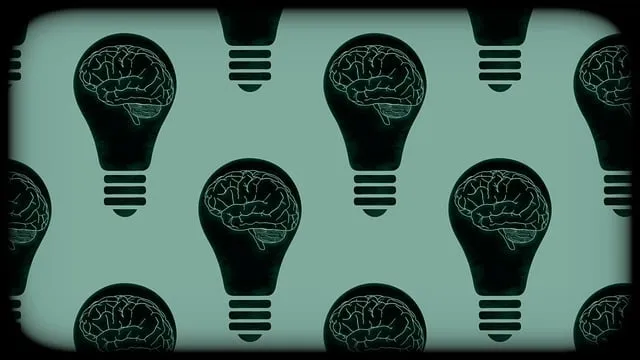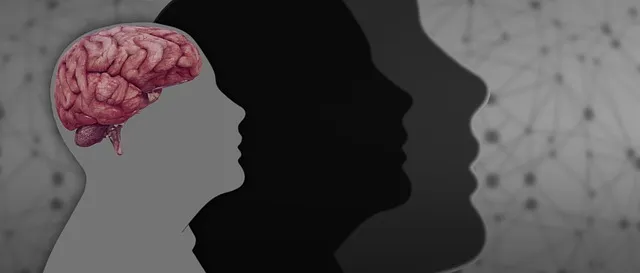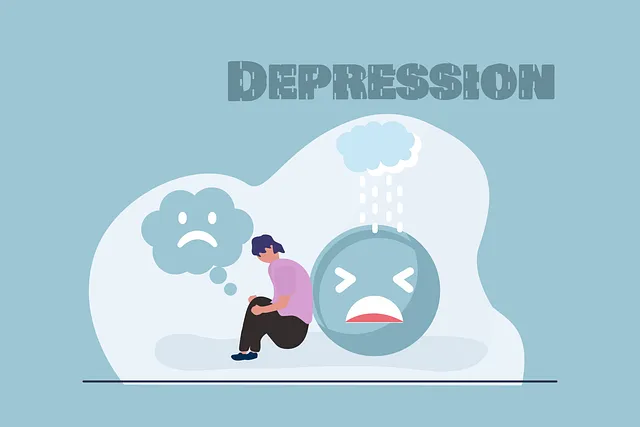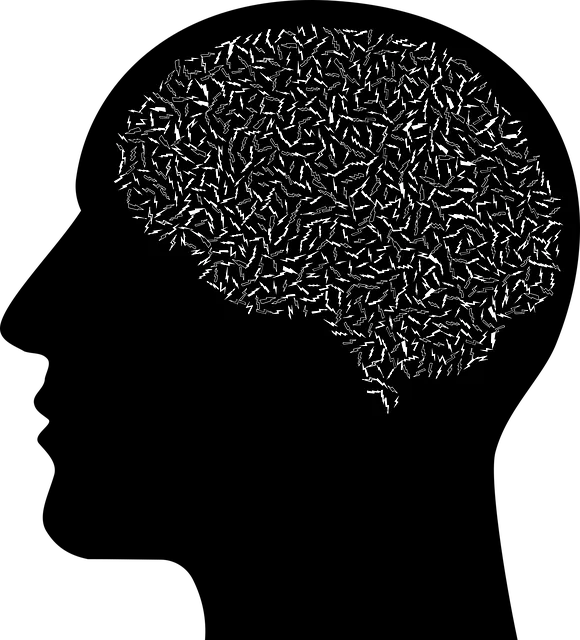Depression, a serious global concern, requires early detection through understanding its diverse risk factors. Kaiser Permanente Mental Health in Centennial emphasizes symptoms like persistent sadness, appetite changes, sleep disturbances, and suicidal thoughts. Genetic predisposition, brain chemistry imbalances, life trauma, chronic illness, substance abuse, isolation, and poor coping mechanisms contribute to its development. Culturally sensitive healthcare practices are crucial for addressing barriers faced by diverse communities. Building resilience through exercise, mindfulness, and conflict resolution is key in prevention. Kaiser Permanente promotes lifestyle changes, mindfulness meditation, and community outreach programs. Strong social connections offer emotional support, foster understanding, and stabilize moods during crises. Evidence-based therapies like CBT, coupled with holistic practices, reduce depression risk. Self-care through mindfulness, coaching, and skills training enhance resilience and emotional well-being, empowering individuals to navigate life challenges effectively.
Depression is a prevalent and serious issue, but it’s not insurmountable. This comprehensive guide, drawing from the expertise of Kaiser Permanente Mental Health Centennial, offers practical strategies to prevent and manage depression. From understanding the signs and risk factors to adopting lifestyle changes, harnessing social connections, exploring evidence-based therapies, and cultivating self-care practices, each section empowers individuals to take control of their mental well-being. Discover proven methods to navigate and overcome depression with resilience and hope.
- Understanding Depression: Signs and Risk Factors (Kaiser Permanente mental health Centennial)
- Lifestyle Changes for Better Mental Well-being (Centennial approach to depression prevention)
- The Role of Social Connections and Support Networks (Building resilience through relationships)
- Evidence-Based Therapies for Depression Management (Proven strategies from Kaiser Permanente)
- Self-Care Practices: Cultivating Mindfulness and Coping Skills (Empowering yourself against depression)
Understanding Depression: Signs and Risk Factors (Kaiser Permanente mental health Centennial)

Depression is a common yet serious mental health condition that affects millions worldwide. Recognizing its signs and understanding the underlying risk factors are essential steps in prevention, as highlighted by Kaiser Permanente mental health Centennial experts. The initial symptoms can vary from person to person but often include persistent feelings of sadness, loss of interest or pleasure in activities once enjoyed, changes in appetite and sleep patterns, fatigue, difficulty concentrating, and in some cases, thoughts of death or suicide.
Several risk factors contribute to the development of depression, including genetic predisposition, brain chemistry imbalances, hormonal changes, traumatic life events, chronic illnesses, substance abuse, social isolation, and lack of coping skills. Kaiser Permanente mental health Centennial professionals emphasize that cultural sensitivity in mental healthcare practice is crucial, as certain communities may face additional barriers to accessing support. Building resilience through healthy coping strategies, such as exercise, mindfulness, and conflict resolution techniques, can also help mitigate these risks.
Lifestyle Changes for Better Mental Well-being (Centennial approach to depression prevention)

In today’s fast-paced world, prioritizing mental well-being is more crucial than ever, especially for young adults embracing the Centennial generation. According to Kaiser Permanente, a leading healthcare provider, lifestyle changes play a pivotal role in depression prevention among this demographic. The organization emphasizes that fostering good mental health involves a holistic approach, encouraging individuals to integrate various practices into their daily routines.
One such strategy is incorporating mindfulness meditation, which has gained significant traction through community outreach program implementations. By teaching folks how to stay present and cultivate awareness of their thoughts and feelings, these programs empower individuals to manage stress effectively. Additionally, healthcare provider cultural competency training is essential in addressing the unique mental health needs of diverse communities, ensuring that support and resources are accessible and culturally sensitive to all.
The Role of Social Connections and Support Networks (Building resilience through relationships)

Social connections play a vital role in preventing depression, as supported by research from Kaiser Permanente Mental Health in Centennial. Building and maintaining strong relationships can act as a buffer against life’s challenges, providing emotional support, understanding, and a sense of belonging. When individuals feel connected to others, they are better equipped to navigate stressful situations and develop resilience.
Empathy building strategies within these networks can be particularly effective. Encouraging open communication, active listening, and offering non-judgmental support create an environment where individuals feel safe expressing their feelings and seeking help. In times of crisis, having a strong support network can provide immediate crisis intervention guidance, helping to stabilize moods and prevent escalation.
Evidence-Based Therapies for Depression Management (Proven strategies from Kaiser Permanente)

Depression is a serious mental health concern, but evidence-based therapies offer effective management strategies. Kaiser Permanente, a healthcare provider in Centennial, has identified proven techniques for depression prevention and treatment. Cognitive Behavioral Therapy (CBT), one of their recommended approaches, focuses on identifying and changing negative thought patterns and behaviors that contribute to low mood. By teaching individuals coping skills development through CBT, they gain the tools to manage their emotional well-being more effectively.
Additionally, Kaiser Permanente emphasizes the importance of mindfulness practices and stress management techniques as part of their holistic approach. These strategies help individuals cultivate a sense of calm and resilience in the face of life’s challenges, thereby reducing the risk of depression. Through these evidence-based methods, Kaiser Permanente aims to promote emotional well-being and enhance the overall mental health of its patients in Centennial.
Self-Care Practices: Cultivating Mindfulness and Coping Skills (Empowering yourself against depression)

In the pursuit of mental wellness, self-care practices are paramount. Cultivating mindfulness—a state of present-moment awareness and non-judgmental attention—is a powerful tool against depression. Regular mindfulness exercises like meditation, deep breathing, or even mindful walks can help individuals manage stress, regulate emotions, and foster a sense of inner peace. This, in turn, strengthens their resilience to life’s challenges, according to Kaiser Permanente mental health professionals in Centennial.
Complementing mindfulness are coping skills developed through various strategies such as Mental Wellness Coaching Programs, Conflict Resolution Techniques, and Empathy Building Strategies. These tools equip individuals with the capacity to navigate difficult situations, resolve conflicts, and foster meaningful connections. By integrating these practices into daily life, people can build a robust defense against depression, enhancing their overall mental wellness.
Depression prevention is a multifaceted approach that leverages lifestyle changes, social connections, evidence-based therapies, and self-care practices, all of which are integral components of the Kaiser Permanente mental health Centennial program. By understanding the signs and risk factors (Kaiser Permanente mental health Centennial) and adopting strategies such as cultivating mindfulness, building resilience through relationships, and engaging in proven therapeutic techniques, individuals can effectively manage and even prevent depression. These holistic methods empower people to take control of their mental well-being, fostering a more resilient and balanced life.






